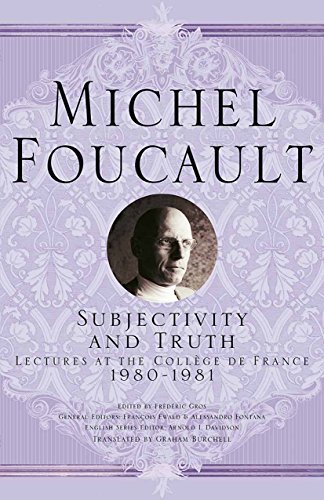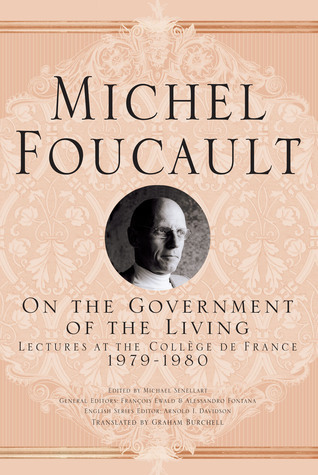
Part of Series
“The working hypothesis is this: it is true that sexuality as experience is obviously not independent of codes and systems of prohibitions, but it needs to be recalled straightaway that these codes are astonishingly stable, continuous, and slow to change. It needs to be recalled also that the way in which they are observed or transgressed also seems to be very stable and very repetitive. On the other hand, the point of historical mobility, what no doubt change most often, what are most fragile, are modalities of experience.”
- Michel Foucault In 1981 Foucault delivered a course of lectures which marked a decisive reorientation in his thought and of the project of a History of Sexuality outlined in 1976. It was in these lectures that arts of living became the focal point around which he developed a new way of thinking about subjectivity. It was also the moment when Foucault problematized a conception of ethics understood as the patient elaboration of a relationship of self to self. It was the study of the sexual experience of the Ancients that made these new conceptual developments possible. Within this framework, Foucault examined medical writings, tracts on marriage, the philosophy of love, or the prognostic value of erotic dreams, for evidence of a structuration of the subject in his relationship to pleasures (aphrodisia) which is prior to the modern construction of a science of sexuality as well as to the Christian fearful obsession with the flesh. What was actually at stake was establishing that the imposition of a scrupulous and interminable hermeneutics of desire was the invention of Christianity. But to do this it was necessary to establish the irreducible specificity of ancient techniques of self. In these lectures, which clearly foreshadow The Use of Pleasures and The Care of Self, Foucault examines the Greek subordination of gender differences to the primacy of an opposition between active and passive, as well as the development by Imperial stoicism of a model of the conjugal bond which advocates unwavering fidelity and shared feelings and which leads to the disqualification of homosexuality.
Author

Michel Foucault was a French philosopher, social theorist and historian of ideas. He held a chair at the Collège de France with the title "History of Systems of Thought," but before he was Professor at University of Tunis, Tunisia, and then Professor at University Paris VIII. He lectured at several different Universities over the world as at the University at Buffalo, the University of California, Berkeley and University of São Paulo, University of Rio de Janeiro, Brazil. Foucault is best known for his critical studies of social institutions, most notably psychiatry, medicine, the human sciences and the prison system, as well as for his work on the history of human sexuality. His writings on power, knowledge, and discourse have been widely influential in academic circles. In the 1960s Foucault was associated with structuralism, a movement from which he distanced himself. Foucault also rejected the poststructuralist and postmodernist labels later attributed to him, preferring to classify his thought as a critical history of modernity rooted in Immanuel Kant. Foucault's project was particularly influenced by Nietzsche, his "genealogy of knowledge" being a direct allusion to Nietzsche's "genealogy of morality". In a late interview he definitively stated: "I am a Nietzschean." Foucault was listed as the most cited scholar in the humanities in 2007 by the ISI Web of Science.


